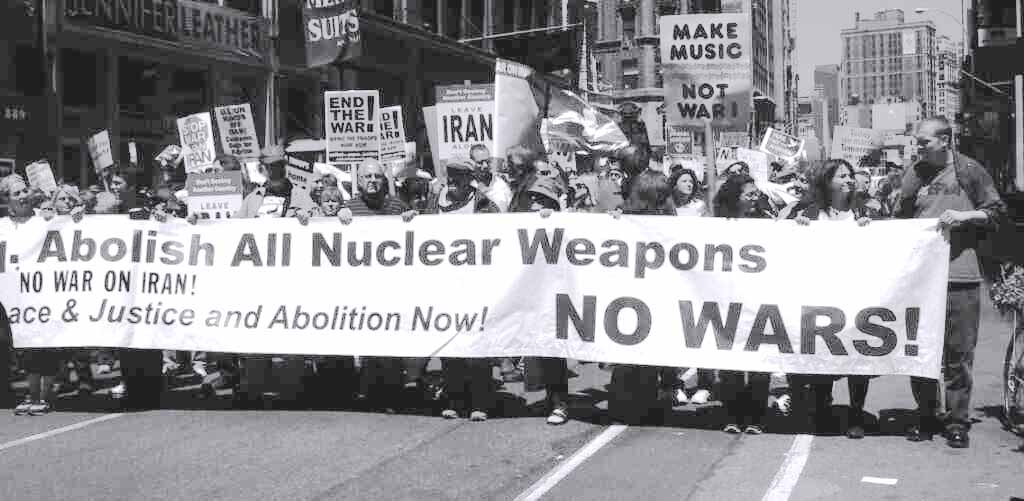Nuclear fastball: Palin, Biden strike out
John Burroughs
In the October 2 vice-presidential debate, moderator Gwen Ifill ventured into a crucial area rarely touched by regular media. She asked:
Governor, on another issue, interventionism, nuclear weapons. What should be the trigger, or should there be a trigger, when nuclear weapons use is ever put into play?
Sarah Palin responded:
Nuclear weaponry, of course, would be the be all, end all of just too many people in too many parts of our planet, so those dangerous regimes, again, cannot be allowed to acquire nuclear weapons, period.
Our nuclear weaponry here in the U.S. is used as a deterrent. And that’s a safe, stable way to use nuclear weaponry.
But for those countries — North Korea, also, under Kim Jong Il — we have got to make sure that we’re putting the economic sanctions on these countries and that we have friends and allies supporting us in this to make sure that leaders like Kim Jong Il and Ahmadinejad are not allowed to acquire, to proliferate, or to use those nuclear weapons. It is that important.
When it was his turn, Joseph Biden did not answer the question, instead referring to John McCain’s vote against ratification of the Comprehensive Nuclear-Test-Ban Treaty in 1999, and to Barack Obama’s work on “keeping nuclear weapons out of the hands of terrorists.”
But Palin really did not answer the question either. She claimed that U.S. reliance on nuclear forces is “safe” and “stable” deterrence. One major question that comes to mind is whether Palin believes the eight other countries in the world with nuclear weapons also practice safe and stable deterrence. Her answer is no with respect to North Korea, and Biden also talked about the danger posed by Pakistan’s arsenal. That leaves six other countries (China, Russia, India, France, United Kingdom, Israel). Palin also said that “dangerous regimes,” Iran being one, cannot be allowed to acquire nuclear weapons. But if deterrence works for the United States, why not for current nuclear have-nots?
More fundamental, though, and at the heart of the question posed by Ifill and not addressed by either Palin or Biden, is this: Deterrence is based on the will and capability to use nuclear weapons when deemed necessary. If you embrace deterrence, you embrace the possibility of use. Similarly, you can’t support the death penalty as a deterrent to horrendous crimes without supporting actual executions. Biden knows this. In a Wall Street Journal op-ed in June 2007 entitled “CSI: Nukes,” he stated that the “U.S. has long deterred a nuclear attack by states, by clearly and credibly threatening devastating retaliation.” He went on to argue that the United States should accelerate work on capabilities to trace the origin of fissile materials used in a terrorist nuclear attack, in order to be able to deter the country where the materials originate. He did not rule out U.S. use of nuclear weapons against such a country.
My organization, the Lawyers’ Committee on Nuclear Policy, this year released a statement, summarized here, that does answer Ifill’s question. In brief, the answer is it is never lawful, moral, or wise to use nuclear weapons, and therefore the United States should abandon the policy of deterrence premised on possible use and work hard for the global elimination of nuclear forces. We emphasize that nuclear use is incompatible with the present-day U.S. conduct of military operations in accordance (in the U.S. understanding) with legal requirements of necessity, proportionality, and discrimination. That is true in all the myriad circumstances (certainly not only in response to a nuclear attack) in which the United States holds out the option of use of nuclear weapons: preemptive or responsive use against biological and chemical as well as nuclear capabilities or attacks; in response to overwhelming conventional attacks; and even in response to “surprising” military developments.








